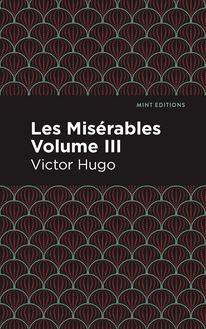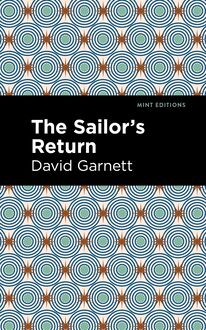-
 Univers
Univers
-
 Ebooks
Ebooks
-
 Livres audio
Livres audio
-
 Presse
Presse
-
 Podcasts
Podcasts
-
 BD
BD
-
 Documents
Documents
-
- Cours
- Révisions
- Ressources pédagogiques
- Sciences de l’éducation
- Manuels scolaires
- Langues
- Travaux de classe
- Annales de BEP
- Etudes supérieures
- Maternelle et primaire
- Fiches de lecture
- Orientation scolaire
- Méthodologie
- Corrigés de devoir
- Annales d’examens et concours
- Annales du bac
- Annales du brevet
- Rapports de stage
La lecture à portée de main
Vous pourrez modifier la taille du texte de cet ouvrage
Découvre YouScribe en t'inscrivant gratuitement
Je m'inscrisDécouvre YouScribe en t'inscrivant gratuitement
Je m'inscrisEn savoir plus
Vous pourrez modifier la taille du texte de cet ouvrage
En savoir plus

Description
Based on true events, The Heart of a Mid-Lothian depicts two stories. The first regards the Porteous Riots of 1736 in Edinburgh, Scotland. After the execution of two smugglers, a riot breaks out in Edinburgh. Unable to control the crowd and impatient, Captain John Porteous, the captain of the city guards, ordered his soldiers to fire into the crowd, murdering civilians. While this disbanded the original riot, the captain's actions soon warrant serious consequences as the civilians demand justice. Next, the story of Jeanie Doss unfolds. Born into a lower class, Jeanie had a humble upbringing, and is a very devout Presbyterian. After a tragic incident leads to her sister being wrongly accused of murdering a baby, Jeanie is determined to help her sister in the most virtuous and just way she can imagine. Traveling mostly on foot, Jeanie decides to go to London, in hopes of meeting with the queen. Determined to obtain justice for her sister, Jeanie fights to receive a royal pardon on her sister’s behalf, clearing her name. First published in 1818, Sir Walter Scott wrote The Heart of a Mid-Lothian to be an imaginative depiction of actual events. Tied together by common themes, these two stories form a moving and shocking narrative. With themes of class, government brutality, social injustice, and religion, The Heart of a Mid-Lothian explores timeless topics that remain to be relevant and compelling. Praised for the masterful and intimate portrayal of Jeanie’s character, The Heart of a Mid-Lothian is descriptive, authentic, and captivating. This edition of The Heart of a Mid-Lothian by Sir Walter Scott now features a striking new cover design and is printed in a font that is both modern and readable. With these accommodations, this edition of The Heart of a Mid-Lothian crafts an accessible and pleasant reading experience for modern audiences while restoring the original mastery and drama of Sir Walter Scott’s literature.
Sujets
Informations
| Publié par | Mint Editions |
| Date de parution | 14 mai 2021 |
| Nombre de lectures | 0 |
| EAN13 | 9781513285436 |
| Langue | English |
| Poids de l'ouvrage | 1 Mo |
Informations légales : prix de location à la page 0,0600€. Cette information est donnée uniquement à titre indicatif conformément à la législation en vigueur.
Extrait
The Heart of Mid-Lothian
Sir Walter Scott
The Heart of Mid-Lothian was first published in 1818.
This edition published by Mint Editions 2021.
ISBN 9781513280417 | E-ISBN 9781513285436
Published by Mint Editions®
minteditionbooks.com
Publishing Director: Jennifer Newens
Design & Production: Rachel Lopez Metzger
Project Manager: Micaela Clark
Typesetting: Westchester Publishing Services
C ONTENTS V OLUME I I II III IV V VI VII VIII IX X XI XII XIII XIV XV XVI XVII XVIII XIX XX XXI XXII XXIII V OLUME II I II III IV V VI VII VIII IX X XI XII XIII XIV XV XVI XVII XVIII XIX XX XXI XXII XXIII XXIV XXV XXVI XXVII XXVIII
VOLUME I
I
Whoe’er’s been at Paris must needs know the Gre’ve,
The fatal retreat of the unfortunate brave,
Where honour and justice most oddly contribute,
To ease heroes’ pains by an halter and gibbet.
There death breaks the shackles which force had put on,
And the hangman completes what the judge but began;
There the squire of the poet, and knight of the post,
Find their pains no more baulked, and their hopes no more crossed.
—Prior
I n former times, England had her Tyburn, to which the devoted victims of justice were conducted in solemn procession up what is now called Oxford Street. In Edinburgh, a large open street, or rather oblong square, surrounded by high houses, called the Grassmarket, was used for the same melancholy purpose. It was not ill chosen for such a scene, being of considerable extent, and therefore fit to accommodate a great number of spectators, such as are usually assembled by this melancholy spectacle. On the other hand, few of the houses which surround it were, even in early times, inhabited by persons of fashion; so that those likely to be offended or over deeply affected by such unpleasant exhibitions were not in the way of having their quiet disturbed by them. The houses in the Grassmarket are, generally speaking, of a mean description; yet the place is not without some features of grandeur, being overhung by the southern side of the huge rock on which the Castle stands, and by the moss-grown battlements and turreted walls of that ancient fortress.
It was the custom, until within these thirty years or thereabouts, to use this esplanade for the scene of public executions. The fatal day was announced to the public by the appearance of a huge black gallows-tree towards the eastern end of the Grassmarket. This ill-omened apparition was of great height, with a scaffold surrounding it, and a double ladder placed against it, for the ascent of the unhappy criminal and executioner. As this apparatus was always arranged before dawn, it seemed as if the gallows had grown out of the earth in the course of one night, like the production of some foul demon; and I well remember the fright with which the schoolboys, when I was one of their number, used to regard these ominous signs of deadly preparation. On the night after the execution the gallows again disappeared, and was conveyed in silence and darkness to the place where it was usually deposited, which was one of the vaults under the Parliament House, or courts of justice. This mode of execution is now exchanged for one similar to that in front of Newgate,—with what beneficial effect is uncertain. The mental sufferings of the convict are indeed shortened. He no longer stalks between the attendant clergymen, dressed in his grave-clothes, through a considerable part of the city, looking like a moving and walking corpse, while yet an inhabitant of this world; but, as the ultimate purpose of punishment has in view the prevention of crimes, it may at least be doubted, whether, in abridging the melancholy ceremony, we have not in part diminished that appalling effect upon the spectators which is the useful end of all such inflictions, and in consideration of which alone, unless in very particular cases, capital sentences can be altogether justified.
On the 7th day of September 1736, these ominous preparations for execution were descried in the place we have described, and at an early hour the space around began to be occupied by several groups, who gazed on the scaffold and gibbet with a stern and vindictive show of satisfaction very seldom testified by the populace, whose good nature, in most cases, forgets the crime of the condemned person, and dwells only on his misery. But the act of which the expected culprit had been convicted was of a description calculated nearly and closely to awaken and irritate the resentful feelings of the multitude. The tale is well known; yet it is necessary to recapitulate its leading circumstances, for the better understanding what is to follow; and the narrative may prove long, but I trust not uninteresting even to those who have heard its general issue. At any rate, some detail is necessary, in order to render intelligible the subsequent events of our narrative.
Contraband trade, though it strikes at the root of legitimate government, by encroaching on its revenues,—though it injures the fair trader, and debauches the mind of those engaged in it,—is not usually looked upon, either by the vulgar or by their betters, in a very heinous point of view. On the contrary, in those countries where it prevails, the cleverest, boldest, and most intelligent of the peasantry, are uniformly engaged in illicit transactions, and very often with the sanction of the farmers and inferior gentry. Smuggling was almost universal in Scotland in the reigns of George I and II; for the people, unaccustomed to imposts, and regarding them as an unjust aggression upon their ancient liberties, made no scruple to elude them whenever it was possible to do so.
The county of Fife, bounded by two firths on the south and north, and by the sea on the east, and having a number of small seaports, was long famed for maintaining successfully a contraband trade; and, as there were many seafaring men residing there, who had been pirates and buccaneers in their youth, there were not wanting a sufficient number of daring men to carry it on. Among these, a fellow called Andrew Wilson, originally a baker in the village of Pathhead, was particularly obnoxious to the revenue officers. He was possessed of great personal strength, courage, and cunning,—was perfectly acquainted with the coast, and capable of conducting the most desperate enterprises. On several occasions he succeeded in baffling the pursuit and researches of the king’s officers; but he became so much the object of their suspicions and watchful attention, that at length he was totally ruined by repeated seizures. The man became desperate. He considered himself as robbed and plundered; and took it into his head that he had a right to make reprisals, as he could find opportunity. Where the heart is prepared for evil, opportunity is seldom long wanting. This Wilson learned that the Collector of the Customs at Kirkcaldy had come to Pittenweem, in the course of his official round of duty, with a considerable sum of public money in his custody. As the amount was greatly within the value of the goods which had been seized from him, Wilson felt no scruple of conscience in resolving to reimburse himself for his losses, at the expense of the Collector and the revenue. He associated with himself one Robertson, and two other idle young men, whom, having been concerned in the same illicit trade, he persuaded to view the transaction in the same justifiable light in which he himself considered it. They watched the motions of the Collector; they broke forcibly into the house where he lodged,—Wilson, with two of his associates, entering the Collector’s apartment, while Robertson, the fourth, kept watch at the door with a drawn cutlass in his hand. The officer of the customs, conceiving his life in danger, escaped out of his bedroom window, and fled in his shirt, so that the plunderers, with much ease, possessed themselves of about two hundred pounds of public money. The robbery was committed in a very audacious manner, for several persons were passing in the street at the time. But Robertson, representing the noise they heard as a dispute or fray betwixt the Collector and the people of the house, the worthy citizens of Pittenweem felt themselves no way called on to interfere in behalf of the obnoxious revenue officer; so, satisfying themselves with this very superficial account of the matter, like the Levite in the parable, they passed on the opposite side of the way. An alarm was at length given, military were called in, the depredators were pursued, the booty recovered, and Wilson and Robertson tried and condemned to death, chiefly on the evidence of an accomplice.
Many thought that, in consideration of the men’s erroneous opinion of the nature of the action they had committed, justice might have been satisfied with a less forfeiture than that of two lives. On the other hand, from the audacity of the fact, a severe example was judged necessary; and such was the opinion of the Government. When it became apparent that the sentence of death was to be executed, files, and other implements necessary for their escape, were transmitted secretly to the culprits by a friend from without. By these means they sawed a bar out of one of the prison-windows, and might have made their escape, but for the obstinacy of Wilson, who, as he was daringly resolute, was doggedly pertinacious of his opinion. His comrade, Robertson, a young and slender man, proposed to make the experiment of passing the foremost through the gap they had made, and enlarging it from the outside, if necessary, to allow Wilson free passage. Wilson, however, insisted on making the first experiment, and being a robust and lusty man, he not only found it impossible to get through betwixt the bars, but, by his struggles, he jammed himself so fast, that he was unable to draw his body back again. In these circumstances discovery became unavoidable, and sufficient precautions were taken by the jailor to
-
 Univers
Univers
-
 Ebooks
Ebooks
-
 Livres audio
Livres audio
-
 Presse
Presse
-
 Podcasts
Podcasts
-
 BD
BD
-
 Documents
Documents
-
Jeunesse
-
Littérature
-
Ressources professionnelles
-
Santé et bien-être
-
Savoirs
-
Education
-
Loisirs et hobbies
-
Art, musique et cinéma
-
Actualité et débat de société
-
Jeunesse
-
Littérature
-
Ressources professionnelles
-
Santé et bien-être
-
Savoirs
-
Education
-
Loisirs et hobbies
-
Art, musique et cinéma
-
Actualité et débat de société
-
Actualités
-
Lifestyle
-
Presse jeunesse
-
Presse professionnelle
-
Pratique
-
Presse sportive
-
Presse internationale
-
Culture & Médias
-
Action et Aventures
-
Science-fiction et Fantasy
-
Société
-
Jeunesse
-
Littérature
-
Ressources professionnelles
-
Santé et bien-être
-
Savoirs
-
Education
-
Loisirs et hobbies
-
Art, musique et cinéma
-
Actualité et débat de société
- Cours
- Révisions
- Ressources pédagogiques
- Sciences de l’éducation
- Manuels scolaires
- Langues
- Travaux de classe
- Annales de BEP
- Etudes supérieures
- Maternelle et primaire
- Fiches de lecture
- Orientation scolaire
- Méthodologie
- Corrigés de devoir
- Annales d’examens et concours
- Annales du bac
- Annales du brevet
- Rapports de stage




















